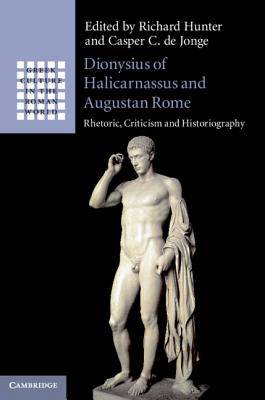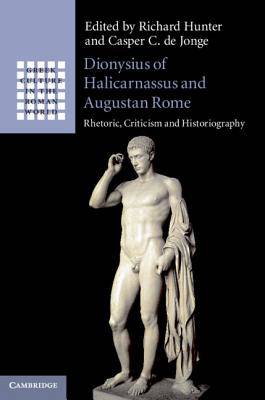
Je cadeautjes zeker op tijd in huis hebben voor de feestdagen? Kom langs in onze winkels en vind het perfecte geschenk!
- Afhalen na 1 uur in een winkel met voorraad
- Gratis thuislevering in België vanaf € 30
- Ruim aanbod met 7 miljoen producten
Je cadeautjes zeker op tijd in huis hebben voor de feestdagen? Kom langs in onze winkels en vind het perfecte geschenk!
- Afhalen na 1 uur in een winkel met voorraad
- Gratis thuislevering in België vanaf € 30
- Ruim aanbod met 7 miljoen producten
Zoeken
Dionysius of Halicarnassus and Augustan Rome
Rhetoric, Criticism and Historiography
€ 183,45
+ 366 punten
Omschrijving
The Greek author Dionysius of Halicarnassus came to Rome in 30/29 BC. He learnt Latin, developed a network of students, patrons and colleagues, and started to teach rhetoric. He published a history of early Rome (Roman Antiquities), and essays on rhetoric and literary criticism, including On the Ancient Orators, On Composition, and several letters. This volume examines how Dionysius' critical and rhetorical works are connected with his history of Rome, and the complex ways in which both components of this dual project - rhetorical criticism and historiography - fit into the social, intellectual, literary, cultural and political world of Rome under Augustus. How does Dionysius' interpretation of the earliest Romans resonate with the political reality of the Principate? And how do his views relate to those of Cicero, Livy and Horace? This volume casts new light on ancient rhetoric, literary criticism, historiography and the literary culture of Augustan Rome.
Specificaties
Betrokkenen
- Uitgeverij:
Inhoud
- Aantal bladzijden:
- 310
- Taal:
- Engels
- Reeks:
Eigenschappen
- Productcode (EAN):
- 9781108474900
- Verschijningsdatum:
- 1/11/2018
- Uitvoering:
- Hardcover
- Formaat:
- Genaaid
- Afmetingen:
- 234 mm x 157 mm
- Gewicht:
- 589 g

Alleen bij Standaard Boekhandel
+ 366 punten op je klantenkaart van Standaard Boekhandel
Beoordelingen
We publiceren alleen reviews die voldoen aan de voorwaarden voor reviews. Bekijk onze voorwaarden voor reviews.








